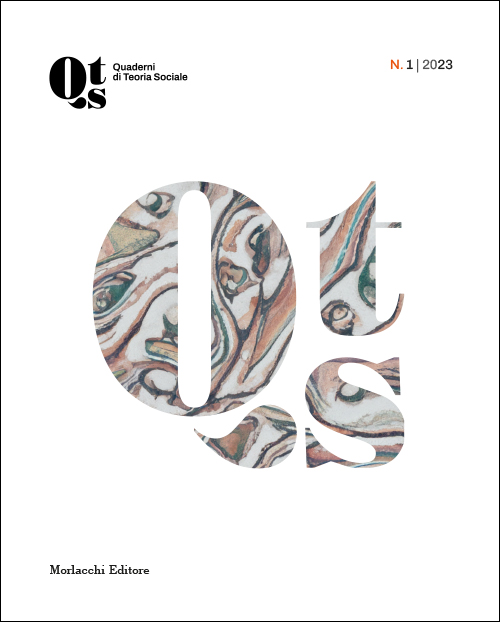Critica sociale organica. Come superare i deficit di critica interna e immanente in chiave di teoria politica
DOI:
https://doi.org/10.57611/qts.v2i1.240Parole chiave:
Organic social criticism, Immanent critique, Critical theoryAbstract
Beginning with the current discussion on the forms of social critique, the essay aims to outline a novel, Gramscian-inspired model of organic social critique, far from any form of paternalism but capable of preserving a strong emancipatory charge. The model aims to overcome certain theoretical deficits found in the model of internal critique as it was thematized by Michael Walzer and later by Luc Boltanski, and by the model of immanent critique proposed within the framework of the neo-Hegelian turn in German critical theory, particularly by Axel Honneth and Rahel Jaeggi. This operation is carried out through the reinterpretation of some of the notions developed by Gramsci, beginning with those of "organic adherence" and "subaltern groups," later revived in postcolonial studies, circumscribing their validity to the figure of the social critic as it is understood in our day.
##submission.downloads##
Pubblicato
Versioni
- 2023-06-27 (2)
- 2023-06-27 (1)
Fascicolo
Sezione
Licenza
Copyright (c) 2023 Marco Solinas

Questo lavoro è fornito con la licenza Creative Commons Attribuzione - Non commerciale 4.0 Internazionale.
<a rel="license" href="http://creativecommons.org/licenses/by-nc/4.0/"><img alt="Licenza Creative Commons" style="border-width:0" src="https://i.creativecommons.org/l/by-nc/4.0/88x31.png" /></a><br />Quest'opera è distribuita con Licenza <a rel="license" href="http://creativecommons.org/licenses/by-nc/4.0/">Creative Commons Attribuzione - Non commerciale 4.0 Internazionale</a>.






